JAVA introductory system tutorial (6) Object-oriented (encapsulation)
Hide some information of the class inside the class and do not allow direct access by external programs. Instead, the operations and access to the hidden information are implemented through the methods provided by the class Advantages: a. Only through regulations Method access number b. Hide the instance details of the class to facilitate modification and implementation
2. Implementation steps: 1) Modify the attribute visibility (set to private) 2) Create a getter/setter method (for attribute reading and writing) 3) Add attribute control statements to the method (to determine the legality of the attribute value) Example: Set the student class: Two attributes 1) name 2) age In the Student class, add age judgment for age. If the age is less than 0 or greater than 150, prompt: Unreasonable dataAdd judgment, the existence that cannot be solved is not Reasonable data;
Use the keyword
private: private ---> cannot be accessed (
Member variables/member methods modified by private can only be accessed in this class, The outside world cannot directly access)
3. Package 1) The role of the package: manage JAVA files and resolve file conflicts with the same name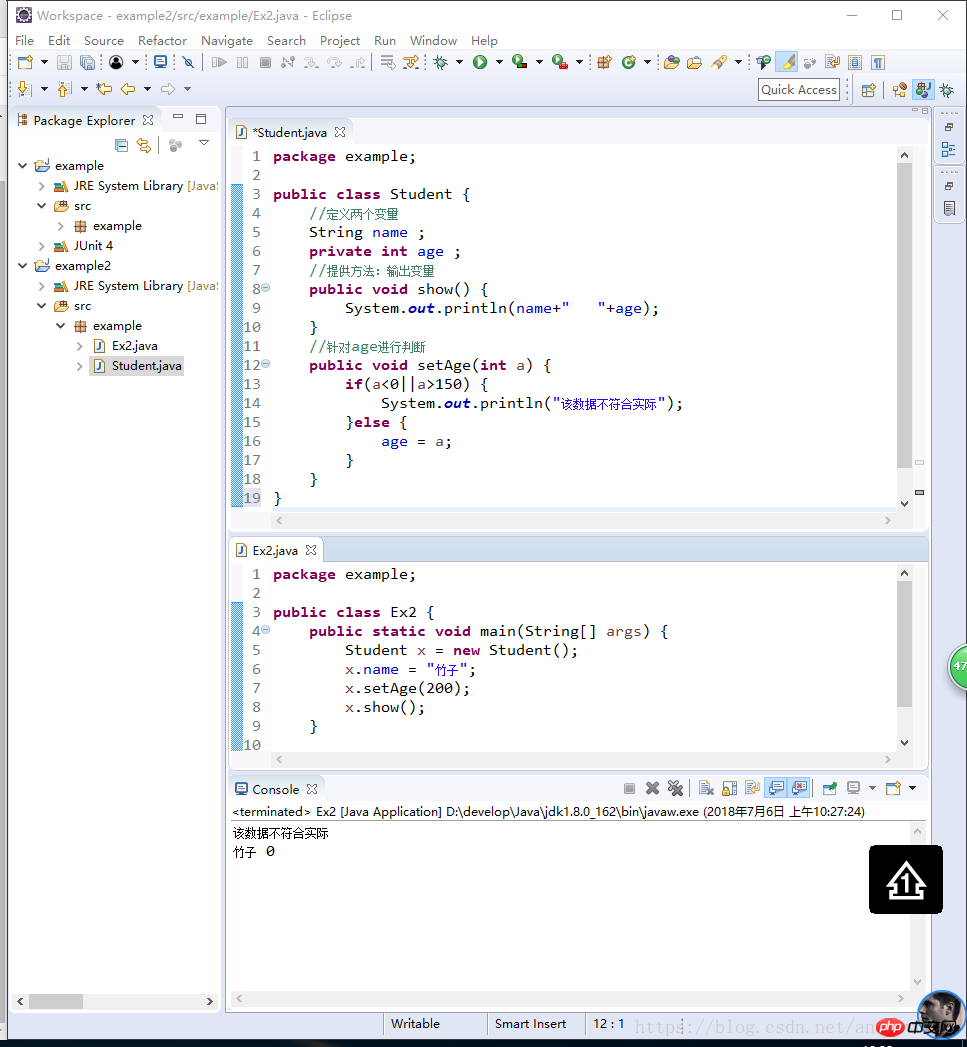 Define package: package package name
Define package: package package name
Note: It must be placed in the first line of the JAVA source program and can be separated by ., such as: com.westos.Class
2) Packages in the system:
java. (Function). (Class)
java.lang. (Class) contains the basic Java language classes 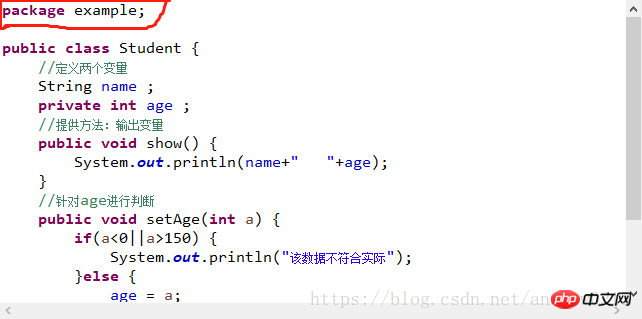
When used, you can load all files under a certain package (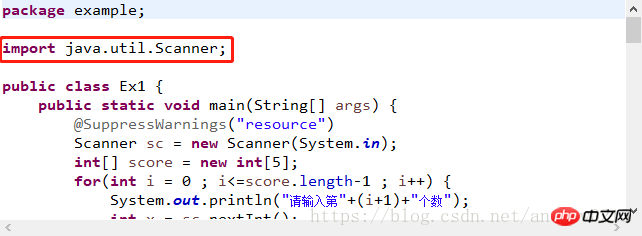 import java.util.*
import java.util.*
import java.util.Scanner)
4. Access modifier: used to modify the access scope of properties and methodsps: Usually we modify methods with public and modify attributes with private
5.this keyword
this.Attribute: Manipulate the properties of the current object
This.Method: Call the method of the current object 2) When encapsulating the properties of an object, the this keyword is often usedps: Generate get and set methods
Source--->Generate Getters and Setters
## At this time we found that our attribute names and parameter names were repeated. In order to distinguish them, we added the this keyword, which means assigning the value of the parameter to the current attribute. The value of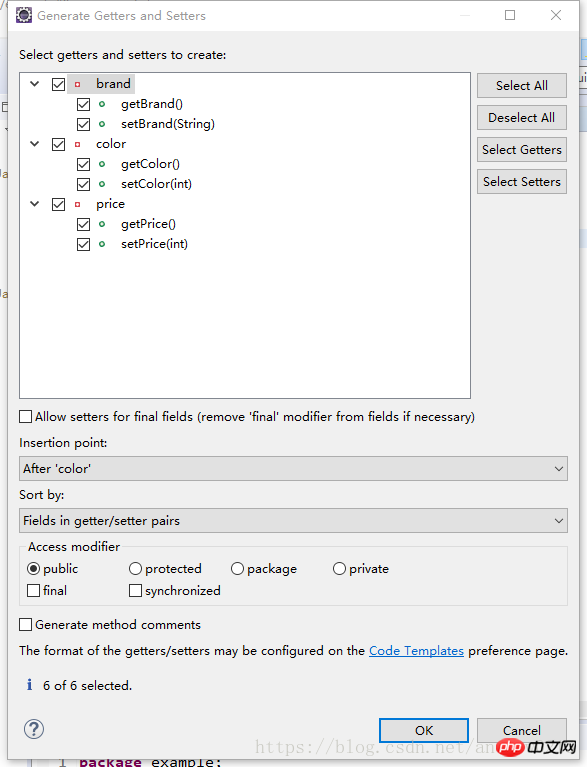 This keyword can not only be used with attributes, but also can be used if we want to call a method in a set method
This keyword can not only be used with attributes, but also can be used if we want to call a method in a set method
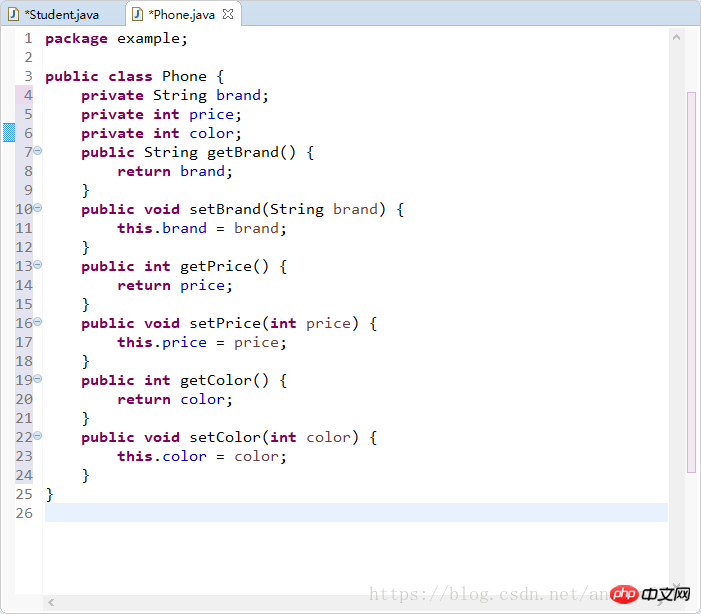
Example: Based on the previous example, the output result is
1. Mobile phone class
package example;
public class Phone { private String brand; private int price; private String color; public void sendMessage() { System.out.println("you can message to Andrew"); } public String getBrand() { return brand; } public void setBrand(String brand) { this.brand = brand; this.sendMessage(); } public int getPrice() { return price; } public void setPrice(int price) { this.price = price; } public String getColor() { return color; } public void setColor(String color) { this.color = color; } public void show(String name) { System.out.println(name+" use the iphone to call Andrew"); }
}2. Student class 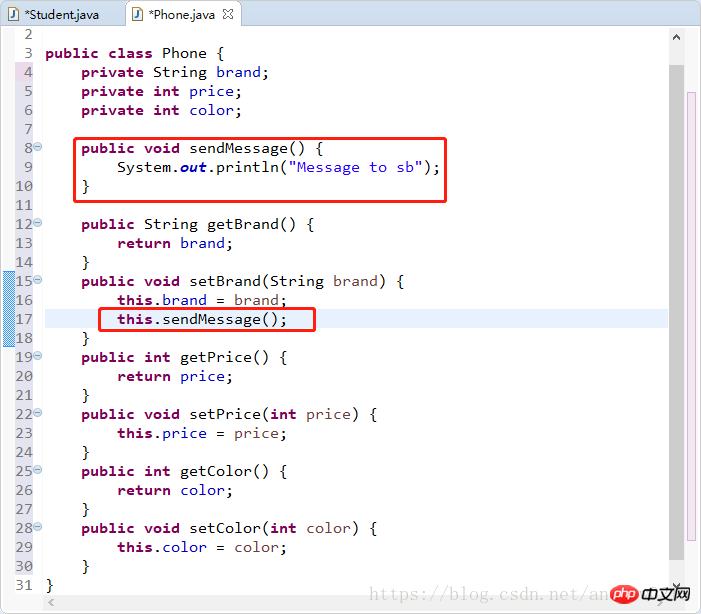
package example;
public class Student { //定义两个变量 String name ; String gender; private int age ; //提供方法:输出变量 public void show() { System.out.println(name+" "+age+" "+gender); } public String getName() { return name; } public void setName(String name) { this.name = name; } public int getAge() { return age; } public String getGender() { return gender; } public void setGender(String gender) { this.gender = gender; } //针对age进行判断 public void setAge(int a) { if(a<0||a>150) { System.out.println("该数据不符合实际"); }else { age = a; } }
}3. Call
package example;
public class Ex2 { public static void main(String[] args) { Student x = new Student(); Phone i = new Phone(); x.setAge(24); x.setName("Silvia"); x.setGender("Lady"); x.show(); i.setBrand("Apple"); i.setColor("玫瑰金"); i.setPrice(6999); i.show(x.name); }
}JAVA Getting Started System Tutorial (4) Basic Grammar (2)
JAVA Getting Started System Tutorial (5) Basic Syntax (3)
The above is the detailed content of JAVA introductory system tutorial (6) Object-oriented (encapsulation). For more information, please follow other related articles on the PHP Chinese website!

Hot AI Tools

Undresser.AI Undress
AI-powered app for creating realistic nude photos

AI Clothes Remover
Online AI tool for removing clothes from photos.

Undress AI Tool
Undress images for free

Clothoff.io
AI clothes remover

Video Face Swap
Swap faces in any video effortlessly with our completely free AI face swap tool!

Hot Article

Hot Tools

Notepad++7.3.1
Easy-to-use and free code editor

SublimeText3 Chinese version
Chinese version, very easy to use

Zend Studio 13.0.1
Powerful PHP integrated development environment

Dreamweaver CS6
Visual web development tools

SublimeText3 Mac version
God-level code editing software (SublimeText3)

Hot Topics
 1386
1386
 52
52
 Perfect Number in Java
Aug 30, 2024 pm 04:28 PM
Perfect Number in Java
Aug 30, 2024 pm 04:28 PM
Guide to Perfect Number in Java. Here we discuss the Definition, How to check Perfect number in Java?, examples with code implementation.
 Weka in Java
Aug 30, 2024 pm 04:28 PM
Weka in Java
Aug 30, 2024 pm 04:28 PM
Guide to Weka in Java. Here we discuss the Introduction, how to use weka java, the type of platform, and advantages with examples.
 Smith Number in Java
Aug 30, 2024 pm 04:28 PM
Smith Number in Java
Aug 30, 2024 pm 04:28 PM
Guide to Smith Number in Java. Here we discuss the Definition, How to check smith number in Java? example with code implementation.
 Java Spring Interview Questions
Aug 30, 2024 pm 04:29 PM
Java Spring Interview Questions
Aug 30, 2024 pm 04:29 PM
In this article, we have kept the most asked Java Spring Interview Questions with their detailed answers. So that you can crack the interview.
 Break or return from Java 8 stream forEach?
Feb 07, 2025 pm 12:09 PM
Break or return from Java 8 stream forEach?
Feb 07, 2025 pm 12:09 PM
Java 8 introduces the Stream API, providing a powerful and expressive way to process data collections. However, a common question when using Stream is: How to break or return from a forEach operation? Traditional loops allow for early interruption or return, but Stream's forEach method does not directly support this method. This article will explain the reasons and explore alternative methods for implementing premature termination in Stream processing systems. Further reading: Java Stream API improvements Understand Stream forEach The forEach method is a terminal operation that performs one operation on each element in the Stream. Its design intention is
 TimeStamp to Date in Java
Aug 30, 2024 pm 04:28 PM
TimeStamp to Date in Java
Aug 30, 2024 pm 04:28 PM
Guide to TimeStamp to Date in Java. Here we also discuss the introduction and how to convert timestamp to date in java along with examples.
 Java Program to Find the Volume of Capsule
Feb 07, 2025 am 11:37 AM
Java Program to Find the Volume of Capsule
Feb 07, 2025 am 11:37 AM
Capsules are three-dimensional geometric figures, composed of a cylinder and a hemisphere at both ends. The volume of the capsule can be calculated by adding the volume of the cylinder and the volume of the hemisphere at both ends. This tutorial will discuss how to calculate the volume of a given capsule in Java using different methods. Capsule volume formula The formula for capsule volume is as follows: Capsule volume = Cylindrical volume Volume Two hemisphere volume in, r: The radius of the hemisphere. h: The height of the cylinder (excluding the hemisphere). Example 1 enter Radius = 5 units Height = 10 units Output Volume = 1570.8 cubic units explain Calculate volume using formula: Volume = π × r2 × h (4
 Create the Future: Java Programming for Absolute Beginners
Oct 13, 2024 pm 01:32 PM
Create the Future: Java Programming for Absolute Beginners
Oct 13, 2024 pm 01:32 PM
Java is a popular programming language that can be learned by both beginners and experienced developers. This tutorial starts with basic concepts and progresses through advanced topics. After installing the Java Development Kit, you can practice programming by creating a simple "Hello, World!" program. After you understand the code, use the command prompt to compile and run the program, and "Hello, World!" will be output on the console. Learning Java starts your programming journey, and as your mastery deepens, you can create more complex applications.




